About Ingalls Memorial Hospital Behavioral Health
Located in southern Chicago and serving residents through the greater southern Chicago region is the Ingalls Memorial Hospital Behavioral Health Center in Harvey, Illinois. You’ll find hospital level care for adults, children, and adolescents who are struggling with their mental health or have a co-occurring substance use struggle here. Care is offered in both inpatient and outpatient settings.
This medical center is located close to the residential communities in Ingalls, Harvey, and other suburban communities in south Chicago. This will provide you with convenient access to care. Along with most major insurance providers, they accept Medicare here.
Since this is a hospital facility, care is provided in a clinical, highly structured setting. Still, your treatment is tailored to your unique recovery needs. However, you should know that, with few exceptions, visitors are not permitted in Ingalls Memorial Hospital.
This hospital is affiliated with the University of Chicago School of Medicine, so there are some benefits to getting care here. For example, if the treatment of your symptoms with your mental health and addiction challenges has not been successful with traditional approaches to care, novel therapies, including clinical trials, are available here. Your care team will discuss any clinical trials that you might qualify for, but it’s good to ask about them as well if you have specific concerns.
You’ll work with a dedicated team of professionals here including psychologists and specialists in addiction recovery. There are also specialists here providing integrative care if you have struggled with eating disorders, personality disorders, and other challenges related to your behavioral health.
Its convenient location in southern Chicago allows you to access quality care even if you don’t have your own car or live too far to walk here. There are public transportation routes that run through the hospital to various communities here.
Addiction Treatment Programs
Dual Diagnosis
A dual diagnosis is when you have a mental health diagnosis along with a substance use disorder. Getting integrated rehab in Illinois is essential to long-term recovery. Whether you need detox, inpatient treatment, or outpatient care, dual diagnosis program will offer specific support for your mental health needs alongside traditional substance use treatment.
Young Adult Rehab
Choosing a young adult rehab in Illinois can be a great way to learn new life skills while also addressing substance use. Whether you need detox, inpatient treatment, or outpatient care, a young adult program will offer specific support for your emotional, mental, and social needs.
Adult Program
Adulting can be hard. When you choose an adult program in Illinois, you get the support you need to overcome addiction and build a successful life. Whether you need detox, inpatient treatment, or outpatient care, an adult program will offer specific support for your emotional, mental, and social needs.
Senior Rehab
Older clients may find it more comfortable to choose a senior rehab in Illinois. Whether you need detox, inpatient treatment, or outpatient care, a senior program will offer specific support for your physical, emotional, mental, and social needs.
Men's Rehab
Men need unique support, and a men’s rehab in Illinois can help them manage gender-specific concerns while overcoming addiction. Whether you need detox, inpatient treatment, or outpatient care, a men’s program will offer specific support for your emotional, mental, and social needs.
Women's Rehab
When people join a women’s rehab in Illinois, they are able to tackle gender-specific issues while receiving treatment. Whether you need detox, inpatient treatment, or outpatient care, a women’s program will offer specific support for your emotional, mental, and social needs.
Insurance Coverage
Medicaid
There are many ways to pay for rehab in Illinois, including using Medicaid if you qualify. Using Medicaid can allow you to access treatment without paying much, if anything, out of pocket. Be sure to find a center that accepts Medicaid and has the level of care you need.
Private insurance
There are many ways to pay for rehab in Illinois, and one option is to use private insurance. Insurance plans can pay some or all of the costs of rehab. Each plan has different coverage details, and you’ll pay less if you choose a treatment center in the plan’s network. Contact the insurer to find out more information.
Self-pay options
In Illinois, you can pay for rehab yourself, which is known as self-pay. Whether you write a check, have money sent to the center electronically, or use a medical loan, you’ll want to check the fee schedule, which may vary depending on the level of care.
Financial aid
Trying to see if you qualify for financial aid programs can be a great way to pay for rehab in Illinois. Community groups or non-profits in your area may offer assistance, or you might find a treatment program that has grants or scholarships.
Medicare
How do you pay for rehab in Illinois? If you have Medicare, consider using it to pay for some or all of the costs of treatment. Coverage may vary depending on whether you have Original Medicare or Medicare Advantage. You may be responsible for certain costs, such as copayments and deductibles.
Military insurance
When you’re planning to use military insurance to pay for rehab in Illinois, there are a few details to keep in mind. Contact your insurer to get details about coverage and out-of-pocket costs, such as deductibles and copayments.
Levels of Care
- 1
Inpatient Rehab
During inpatient treatment in Illinois, each client lives at the facility and is able to focus entirely on recovery. During inpatient treatment, clients are able to work on their recovery through counseling, activities, and holistic treatment like mindfulness, art therapy, and more.
- 2
Outpatient Rehab
Outpatient treatment in Illinois allows clients to live at home or in a sober living facility while attending treatment. Building a new life for yourself takes time, and it’s important to have enough support throughout the process. Outpatient treatment allows you to have more intensive or less intensive help, depending on your needs.
Therapies
Cognitive Behavior Therapy
In Illinois, cognitive behavioral therapy (CBT) is widely used in addiction treatment. Substance use treatment includes detox, inpatient treatment, and outpatient care, and CBT may be a part of each of these stages. The goal is to help clients identify distorted thinking, replace it with rational thinking, and change their responses accordingly.
Experiential Therapy
Experiential therapy in Illinois gives you tools to process your emotions, helping you improve and change your life. By participating in art, music, or physical activities like hiking, you can learn to face internal issues without turning to substance use. Instead, you’ll develop healthy coping mechanisms.
Family Therapy
Family therapy in Illinois helps clients overcome substance use by addressing the family conflicts and dysfunction that may contribute to addiction. There are several goals in family therapy. Some sessions may be focused on specific past events, while others address current broken relationships or how good intentions have gone astray. Over time, family relationships can be restored, making recovery easier.
Group Therapy
Group therapy in Illinois helps clients overcome substance use by providing accountability and support. Substance use treatment includes detox, inpatient treatment, and outpatient care, and group therapy may be a part of each of these stages. The goal is to help clients support each other, provide accountability, and relate to each other’s experiences.
Individual Therapy
Attending individual therapy in Illinois is a way to work through your past and develop healthy coping skills, helping you establish long-term recovery. Some of the topics covered in individual therapy include developing healthy coping skills, addressing past events that may have played a part in substance use, and building a support network.
Trauma Therapy
Many people struggling with addiction in Illinois are dealing with unprocessed trauma. Trauma-informed therapy can help you address what happened and develop healthier coping strategies. Both inpatient treatment and outpatient care can include trauma-informed therapy, which helps you create a feeling of safety, access peer support, embrace the validity of your feelings, and create healthy coping skills.
Location
Contact Ingalls Memorial Hospital Behavioral Health
Top Drug Rehab Centers in Illinois
-
 Illinois
IllinoisPositive Sobriety Institute
680 N Lake Shore Dr, Suite 800 Chicago, Illinois 60611
-
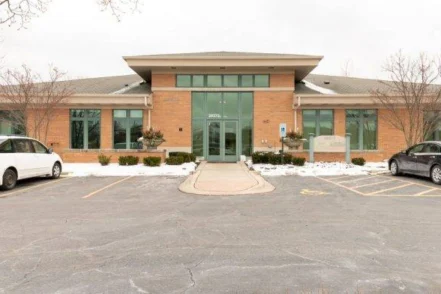 Illinois
IllinoisSymetria Recovery Naperville Warrenville
28373 Davis Parkway, Suite 500 Warrenville, Illinois 60555
-
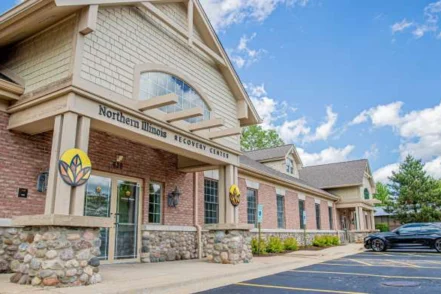 Illinois
IllinoisNorthern Illinois Recovery Center
620 N State Rte 31 Crystal Lake, Illinois 60012
-
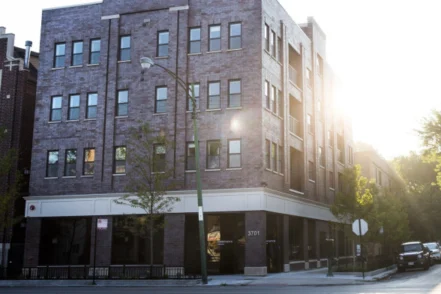 Illinois
IllinoisRosecrance Lakeview
3701 N. Ashland Ave Chicago, Illinois 60613
-
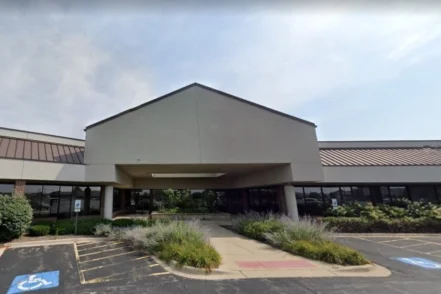 Illinois
IllinoisMathers Recovery Elgin
420 Airport Rd, Suite C Elgin, Illinois 60123
-
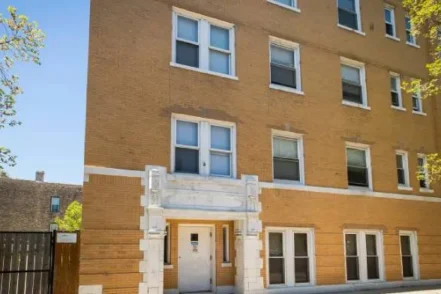 Illinois
IllinoisGateway Foundation Kedzie Recovery Home
1706 North Kedzie Avenue Chicago, Illinois 60647
-
 Illinois
IllinoisHazelden Betty Ford Foundation
867 North Dearborn Street Chicago, Illinois 60610
-
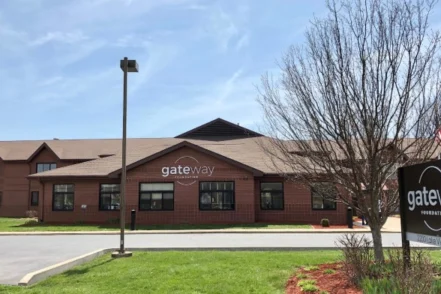 Illinois
IllinoisGateway Foundation
2200 Lake Victoria Drive Springfield, Illinois 62703
-
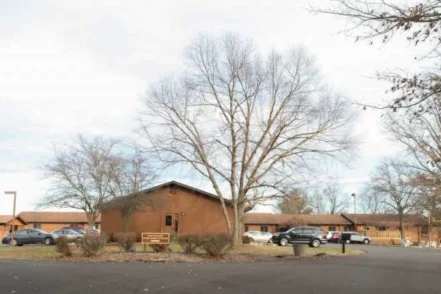 Illinois
IllinoisCenterstone Fellowship House Campus
800 North Main Street Anna, Illinois 62906
-
 Illinois
IllinoisGateway Foundation Mercy Lane
400 Mercy Lane Aurora, Illinois 60506
-
 Illinois
IllinoisGateway Foundation Caseyville
600 West Lincoln Avenue Caseyville, Illinois 62232
-
 Illinois
IllinoisFootprints To Recovery
411 West River Road, Suite 309 Elgin, Illinois 60123
-
 Illinois
IllinoisPreferred Family Healthcare Recovery Resources
428 South 36th Street Quincy, Illinois 62301
-
 Illinois
IllinoisSymetria Recovery Lakeview
3934 North Lincoln Avenue Chicago, Illinois 60613
-
 Illinois
IllinoisGateway Foundation Carbondale
1080 East Park Street Carbondale, Illinois 62901
Other Popular Illinois Cities
Browse by Illinois cities
- Cairo
- Calumet City
- Canton
- Carbondale
- Carlinville
- Carlyle
- Carmi
- Carol Stream
- Carpentersville
- Carrollton
- Carterville
- Carthage
- Cary
- Caseyville
- Centralia
- Champaign
- Charleston
- Chester
- Chicago
- Chicago Heights
- Chicago Ridge
- Chillicothe
- Cicero
- Cissna Park
- Clifton
- Clinton
- Collinsville
- Crest Hill
- Crete
- Crystal Lake